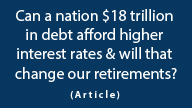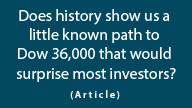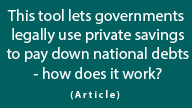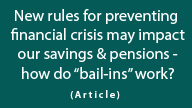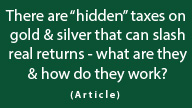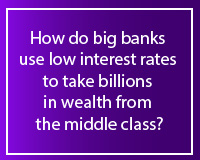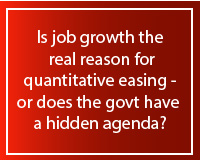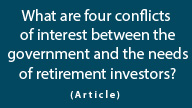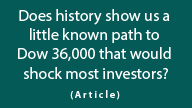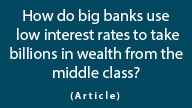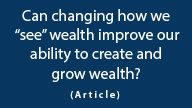Is Simple Incompetence The Real Source Of Crises?
by Daniel R. Amerman, CFA
Below is the 2nd half of this article. If you would prefer to read (or link) the article in single page form, the private one page version for subscribers can be found here:
The Complex & Dangerous Challenges Ahead
Since 2008, US interest rates and market performance have arguably been dominated by the very active interventions of the Federal Reserve. Interest rates have been forced to historic lows, and the Fed has used extraordinary amounts of monetary creation to reach this objective. As further explored here, these very low interest rates have in fact been a key component of why bond and stock market prices have reached record levels, even while the underlying economy continues sputter, with the negative GDP growth in the first quarter of 2015 being only the latest example.
On a global basis, we are also in an interlinked and fragile financial situation, where central banks have been competing with varying levels of quantitative easing in order to lower the value of their currencies and give their national economies competitive advantages.
And perhaps most importantly of all, and enabling all of this – is that the world's largest and most sophisticated investors, the institutional investors, have been "retrained" to view the dominant source of market movements as being central banking actions.
Now the Federal Reserve has been talking about their desire to change this situation. They say they want to at least slightly increase interest rates. And they would like to gradually move the markets back towards a place where it is fundamentals that drive price movements instead of interpretations of key sentences in central banking statements.
There are myriad complications, however. For one, no one's ever done this before – this is new economic theory that is being tested as we go.
How exactly does one handle that transition from institutional investors basing their market judgments on central bank policies to making their judgments based on the economic fundamentals – without triggering a collapse in asset prices for stocks and bonds? How does one get off "the tiger" without being eaten (as explored here)? Now those are difficult and tricky questions.
In this tightly interlinked world of ours, how much instability is introduced if the Federal Reserve gets out of synch with the rest of the world by increasing interest rates – thereby making the US dollar far more attractive – at the same time that the European Central Bank and Bank of Japan and others are all using record degrees of quantitative easing to drive down their own currencies? Now that is another very good question.
What will happen to US unemployment if as a result of a surging dollar, American workers are suddenly at a major disadvantage relative to workers in Japan and Europe? What will happen to economic growth if US companies lose market share for both exports and imports simultaneously as a result of this stronger dollar? The answer to those two questions could change everything.
What happens to stock market values if the near zero interest rate source of market support is withdrawn simultaneously with investors determining that they can no longer rely on the Federal Reserve for support, at the same time that US companies are losing market share both domestically and on a global basis? Now there is a major dilemma!
And here is another compelling question: is there the potential for something to go wrong in that process?
The Problem With Vast Powers
Central banks such as the Federal Reserve, working together with national governments, have great powers indeed. They can create money at will on a multi-trillion dollar scale. If the laws and regulations limit them, the laws and regulations can be changed along with the very nature of money itself.
So what may look impossible if we look at money as being a limited resource, or if we look at something working within the current legal framework, can indeed be overridden at will. As we've seen around the globe ever since 2008.
However, if we move away from theory and grand powers to a much more fundamental perspective – which is that of people being well, just people – then these extraordinary powers are not necessarily a solution to the problems, but can instead become the problem itself.
Sometimes people who have extraordinary powers come to have a very high opinion of their own intelligence and their ability to effectively use those powers. They can sometimes become overly confident. And if in their hubris, that same group of people whose incompetence arguably caused the last crisis, attempt to use these grand powers to do something much more complex and difficult than what they had failed at the last time – it's just possible that the outcome may not be at all what they anticipate.
Indeed, the outcome for us all may quite different from what most expect.
We currently face a far more complex set of circumstances than we did in 2007 and 2008. And perhaps an important question to ask ourselves should be: if the central banks just plain weren't competent enough to handle the last set of problems, how certain can we be that they will be able to handle our current and future challenges?
 What you have just read is an "eye-opener" about one aspect of the often hidden redistributions of wealth that go on all around us, every day.
What you have just read is an "eye-opener" about one aspect of the often hidden redistributions of wealth that go on all around us, every day.
 A personal retirement "eye-opener" linked here shows how the government's actions to reduce interest payments on the national debt can reduce retirement investment wealth accumulation by 95% over thirty years, and how the government is reducing standards of living for those already retired by almost 50%.
A personal retirement "eye-opener" linked here shows how the government's actions to reduce interest payments on the national debt can reduce retirement investment wealth accumulation by 95% over thirty years, and how the government is reducing standards of living for those already retired by almost 50%.
 An "eye-opener" tutorial of a quite different kind is linked here, and it shows how governments use inflation and the tax code to take wealth from unknowing precious metals investors, so that the higher inflation goes, and the higher precious metals prices climb - the more of the investor's net worth ends up with the government.
An "eye-opener" tutorial of a quite different kind is linked here, and it shows how governments use inflation and the tax code to take wealth from unknowing precious metals investors, so that the higher inflation goes, and the higher precious metals prices climb - the more of the investor's net worth ends up with the government.
 When we look at all government retirement promises over the coming decades – the total is simply unpayable. As explored in the "eye opener" linked here, this means that there is a high probability of an eventual tax code "revolution" that could rewrite all the rules when it comes to the future treatment of our current retirement accounts.
When we look at all government retirement promises over the coming decades – the total is simply unpayable. As explored in the "eye opener" linked here, this means that there is a high probability of an eventual tax code "revolution" that could rewrite all the rules when it comes to the future treatment of our current retirement accounts.







If you find these "eye-openers" to be interesting and useful, there is an entire free book of them available here, including many that are only in the book. The advantage to the book is that the tutorials can build on each other, so that in combination we can find ways of defending ourselves, and even learn how to position ourselves to benefit from the hidden redistributions of wealth.


